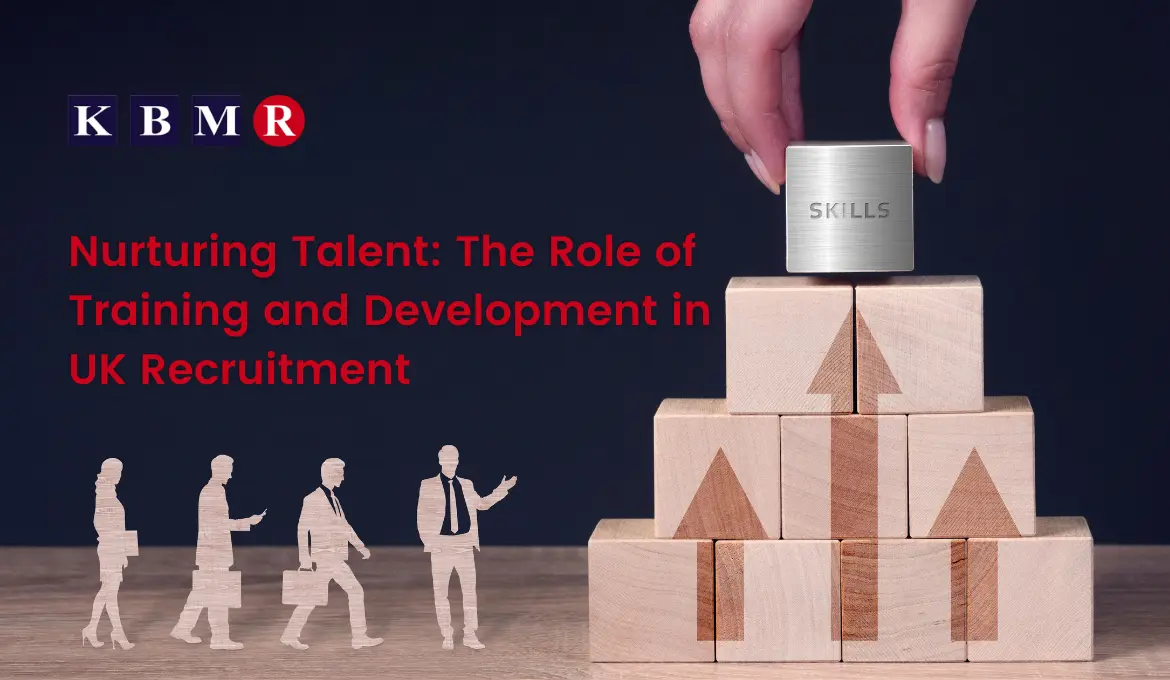Attracting top talent is only the first step in the ever-evolving UK job market. Organisations must prioritise their workforce's ongoing growth and development to thrive.
This article will explain the pivotal role of training and development in the recruitment process within the UK, examining how investing in employees' skills enhances their performance and contributes to long-term organisational success.
The Evolving Recruitment Landscape
-
Changing Workforce Dynamics: The UK workforce is becoming increasingly diverse and dynamic. With varied skill sets, experiences, and expectations, organisations need agile recruitment strategies beyond traditional hiring approaches.
-
Skills Gap Challenges: Many industries in the UK face a skills gap, where the demand for specific skills outstrips the available talent. Bridging this gap requires a strategic focus on training and development to upskill existing employees and attract top talent.
-
Talent Retention: Recruitment is not just about bringing new talent on board; it's also about retaining and nurturing existing talent. Training and development are crucial in creating a workplace culture that values continuous learning and growth.
The Importance of Training and Development
-
Skill Enhancement: Training and development programmes allow employees to enhance and acquire new skills. This is especially vital in industries where having current expertise is a must due to technological advancements and market trends.
-
Employee Engagement: This is particularly crucial in industries where staying current with expertise is essential due to technological advancements and market trends.
-
Adaptability to Change: Organisations must be flexible in a fast-changing business world. Continuous training ensures employees can adapt to new technologies, processes, and industry trends, maintaining a competitive edge.
Integrating Training into the Recruitment Process
-
Pre-Employment Training: Consider offering pre-employment training to candidates during recruitment. This helps prospective employees acquire the necessary skills and showcases the organisation's commitment to employee development from the outset.
-
Onboarding Programmes: Robust onboarding programmes that include comprehensive training help new hires integrate seamlessly into the organisation. This is a critical phase for setting expectations and introducing employees to the company's values and culture.
-
Tailored Development Plans: Create personalised development plans for employees based on their skills, aspirations, and the organisation's needs. Tailoring training programmes ensures that employees receive relevant and impactful learning experiences.
-
Mentorship and Coaching: Implement mentorship and coaching programmes that pair experienced and newer employees. This fosters knowledge transfer, accelerates skill development, and enhances overall employee satisfaction.
-
E-Learning Platforms: Utilise e-learning platforms to provide accessible and flexible training options. These platforms allow employees to learn at their own pace, whether in the office or remotely, fostering a culture of continuous improvement.
Overcoming Challenges in Training and Development
-
Budget Constraints: Budget constraints can be challenging, but organisations can explore cost-effective training solutions such as online courses, webinars, and leveraging internal expertise. Investing in training often yields long-term benefits that outweigh the initial costs.
-
Time Constraints: Due to their job responsibilities, employees may face time constraints. Flexible training schedules, micro-learning modules, and integrating learning into daily tasks can address this challenge.
-
Measuring Effectiveness: Set clear metrics to measure the effectiveness of training programmes. Regularly check progress, get feedback, and track performance improvements to see how training is helping employees develop.
The Future of Training in UK Recruitment
-
Embracing Digital Learning: The future of training and development is undoubtedly digital. Embracing online learning platforms, virtual reality, and other digital tools will enable organisations to deliver engaging and efficient training experiences.
-
Focus on Soft Skills: There will be an increased emphasis on developing soft and technical skills. Effective communication, emotional intelligence, and adaptability will be critical factors in fostering well-rounded professionals.
-
Continuous Learning Culture: It will be crucial to incorporate continuous learning into recruitment strategies. Organisations that prioritise ongoing development will attract and retain talent-seeking opportunities for professional growth.
Conclusion
In UK recruitment's competitive landscape, organisations prioritising training and development are better positioned to attract, retain, and nurture top talent. The evolving workforce dynamics and the need to address skills gaps make investing in employee growth a strategic imperative. Integrating training into the recruitment process helps build a culture of continuous learning. This ensures the workforce stays flexible, adaptable, and prepared for future challenges.





